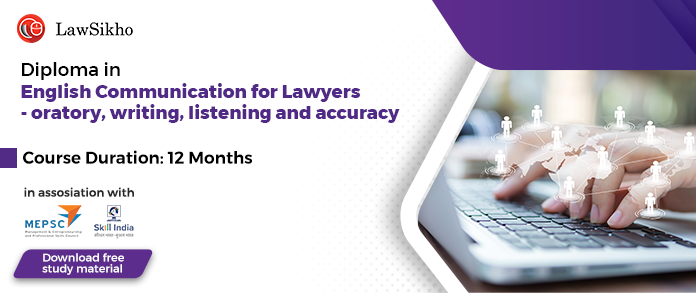This article is written by Shradha Jain pursuing a Diploma in Intellectual Property, Media and Entertainment Laws. This article has been edited by Zigishu (Associate, Lawsikho).
This article has been published by Sneha Mahawar.
Table of Contents
Introduction
Artificial Intelligence (AI) is the world’s fastest-growing deep technology, with enormous potential to rewrite industry regulations, produce significant economic development, and revolutionise all aspects of life. The United Kingdom is a worldwide superpower in artificial intelligence, and it is well-positioned to dominate the globe over the next decade as a true research and innovation powerhouse, a hive of global talent, and a progressive regulatory and commercial hub. Many of the UK’s AI achievements have been aided by the Government’s 2017 Industrial Strategy, which outlined the Government’s goal of making the UK a global leader in AI innovation. The Government and the UK’s AI ecosystem agreed on a near £1 billion AI Sector Deal in April 2018 to strengthen the UK’s worldwide position as a leader in AI technology development.
A consultation on artificial intelligence and intellectual property is being held by the UK Intellectual Property Office (the Consultation). The consultation intends to support the long-term goals set forth in the UK Innovation Strategy and the National AI Strategy. The purpose of the Consultation is to evaluate potential reforms to IP legislation that will foster AI technology innovation and promote its use for the public benefit while maintaining the fundamental role of intellectual property e in supporting human creativity and innovation. In this article, we will briefly discuss the National AI strategy and the Consultation.
National AI strategy
Earlier in 2021 UK released a new strategy to make it a global hub for the research, commercialization, and deployment of responsible AI. UK’s standing among the global AI heavyweights will be secured by the new National AI Strategy. By concentrating on fostering innovation while safeguarding the public, the plan will guarantee that we invest in the long-term requirements of the UK’s AI ecosystem and that every industry and area can benefit from the transition to an AI economy.
The National AI Strategy will guide AI development for the next ten years, based on three important predictions for the decade ahead:
- Access to people, data, computing, and finance—all of which confront fierce global competition—are the fundamental drivers of AI advancement, discovery, and strategic advantage.
- AI will become commonplace in many sectors of the economy, and effort will be necessary to guarantee that every industry and location in the United Kingdom benefits from this transformation.
- The UK’s governance and regulatory systems will need to keep up with the fast-changing needs of AI in order to maximise development and competitiveness, drive UK innovation excellence, and safeguard peoples’ safety, security, choices, and rights.
It lists “people,” “data,” “computing power,” and “finance” as important drivers of AI advancement, discovery, and strategic advantage, and it provides specific activities to pursue, anticipating that AI will become mainstream in the economy and that governance and policy would need to keep up.
Three main pillars are identified in the National AI Strategy:
- Investment in long term needs of the AI ecosystem-to ensure competitiveness
- Supporting the transition to an AI-enabled economy-considering all sectors and regions
- Ensuring the right national and international governance of AI technologies-working with global partners to promote responsible AI development
For each of the above pillars, the National AI Strategy sets out several actions that the UK Government intends to undertake over the next 10 years. Some of the actions that have been identified are:
- Potential for new AI regulation
- Centre for Data Ethics and Innovation (CDEI) AI assurance roadmap to integrate use of AI standards as part of the AI governance model.
- It offers a consultation on the patentability of AI-derived technologies, as well as copyright considerations in the context of computer-generated works and the usage of copyright materials in AI systems.
- AI in Health and Social Care: A New National Strategy- This particular plan is expected to be released in 2022, harmonising with the larger strategy and, perhaps, integrating with the recently released draft plan “Data Saves Lives: Reshaping Health and Social Care with Data.” It will expand on the current NHS AI Lab in NHSX to speed up the development of AI technologies in health and social care in a safe, ethical, and effective manner.
- The UKRI has announced a new National AI Research and Innovation Programme, which will be designed to align funding programmes, encourage investment in AI research, enable cross-discipline collaboration to support research and innovation, and support the continued development of new capabilities around AI technology trustworthiness, acceptability, adoptability, and transparency.
The Consultation
The purpose of the Consultation is to evaluate potential reforms to IP legislation that will foster AI technology innovation and promote its use for the public benefit while maintaining the fundamental role of intellectual property in supporting human creativity and innovation. The Consultation is divided into three sections:
- copyright protection for computer-generated works without a human author;
- licensing or exceptions to copyright protection of material used for text and data mining; and
- patent protection for AI-devised ideas.
The consultation’s goal is to “support AI technology innovation and promote its usage for the public good.” The consultation also intends to “preserve the important role of intellectual property in encouraging human innovation.” Similarly, the UK Government has said that any new policies resulting from the consultation must similarly satisfy these objectives and be based on the best available economic research.
In the Consultation, four policy options are considered:
- Maintaining the existing status quo, with patents available only when the inventor is a human.
- Expanding the definition of “inventor” to include the people in charge of the AI system that creates the innovation. This is a minor legal amendment that would make the person(s) in charge of programming, configuring, running (and so on) the AI system the inventors of the patent produced by that AI system. This option avoids the need for the specified human to reveal whether AI was employed to create the idea.
- Allowing AI to be listed as the inventor in patent applications by allowing AI to be named as the inventor or eliminating the necessity to name an inventor if the innovation was conceived by AI. In both circumstances, the AI system’s human respondent would be entitled to patent rights in the first place (these rights passing to a legal person such as a corporate entity by virtue of contractual rights where applicable). AI would not be allowed to file for patents or possess them. The Consultation believes that disclosing whether an invention was created by AI might encourage its adoption and investment.
- A new form of right to protect AI-created creations. To work alongside the present patent system, the Consultation proposes a quasi-patent right with restricted exclusive rights and a shorter lifespan. The Consultation also makes recommendations for a legal framework based on the present system for these AI quasi-patents, including a stronger test of inventive step, because AI may create in ways that humans would not consider evident. Alternatively, there should be no obviousness test, ensuring that new AI-created ideas are immediately protected. A new quasi-patent right may be less desirable than a patent if it provides less protection, or it may be more attractive if the legal obstacles are simpler to surmount, depending on the circumstances. The Consultation takes notice of this problem, as well as the possibility that inventors seeking patent protection may fraudulently admit the use of AI or be unconcerned about their odds of success under each regime.
Following the consultation, the UK Government will review the comments and, in due time, issue an official response document. The information gathered will be used to inform Government decisions on any legislative changes that may be required as a result of the consultation, and will aid in achieving the goals of encouraging AI innovation and implementation while still promoting and protecting human creativity, according to the consultation.
Conclusion
Later this year, the National AI Strategy offered more comprehensive, quantifiable plans for the first stage of the strategy’s implementation. These will be required to determine the practical implications of several of the recommendations. Within six months, we may anticipate a White Paper on AI policy, but the National AI Research and Innovation Programme will not be launched until next year. In addition, the Centre for Data Ethics and Innovation’s AI assurance roadmap is expected to be released within the quarter, while the IPO’s consultation on copyright and patents for AI is expected to be released within the next three months. A number of additional papers and techniques addressing relevant topics have been offered to organisations. Without a question, these are exciting times. Will the Government maintain the status quo or break the mould by introducing a stronger legislative agenda in support of its national vision to transform Britain into an AI superpower? In any case, the rapid rate of technological advancement and significant advances in AI capabilities will continue to test established IP notions and principles in the coming years.
References
- https://www.mondaq.com/uk/patent/1132974/uk-Government-launches-intellectual-property-and-artificial-intelligence-consultation
- https://www.allenovery.com/en-gb/global/blogs/digital-hub/artificial-intelligence-and-intellectual-property-what-next-for-the-uk
- https://www.gov.uk/Government/consultations/artificial-intelligence-and-ip-copyright-and-patents/artificial-intelligence-and-intellectual-property-copyright-and-patents
- https://www.allenovery.com/en-gb/global/blogs/digital-hub/the-uks-national-ai-strategy—setting-a-10-year-agenda-to-make-the-uk-a-global-ai-superpower
- https://www.jdsupra.com/legalnews/national-ai-strategy-published-in-the-5261853/
Students of Lawsikho courses regularly produce writing assignments and work on practical exercises as a part of their coursework and develop themselves in real-life practical skills.
LawSikho has created a telegram group for exchanging legal knowledge, referrals, and various opportunities. You can click on this link and join:
Follow us on Instagram and subscribe to our YouTube channel for more amazing legal content.
 Serato DJ Crack 2025Serato DJ PRO Crack
Serato DJ Crack 2025Serato DJ PRO Crack










 Allow notifications
Allow notifications


